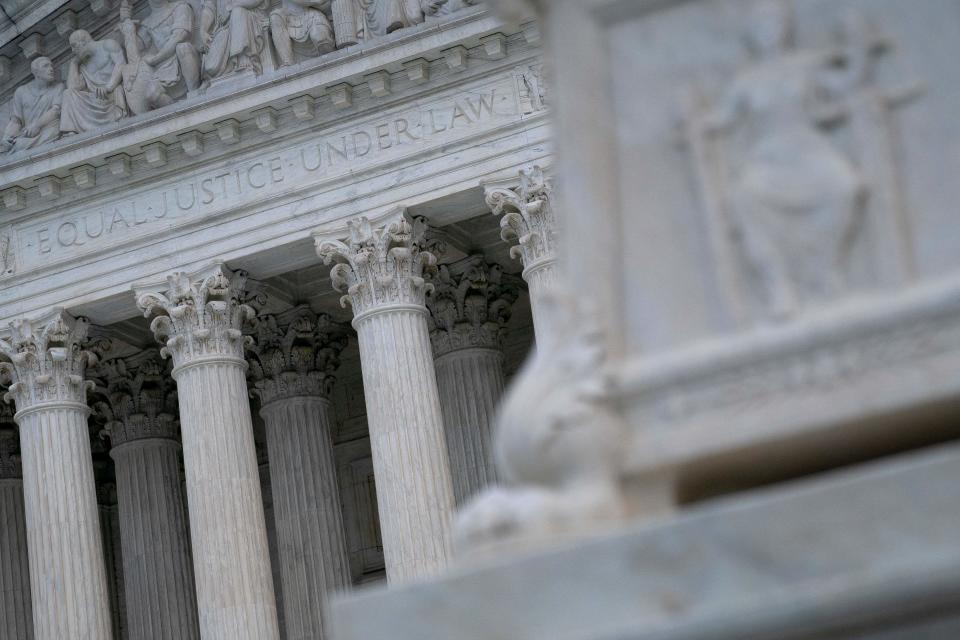Supreme Court declines to review Jim Crow-era voting ban targeted at Black Mississippians
WASHINGTON – The Supreme Court declined Friday to decide whether a permanent voting ban on people convicted of certain felonies in Mississippi violates the Constitution because it was drafted as part of a racist effort to disenfranchise Black voters.
Eleven states, including Mississippi, don't automatically restore voting rights after convicted felons finish their prison sentences, according to the National Conference of State Legislatures. But voting rights experts say that even among those states, Mississippi is an outlier because of how difficult it is for people to regain the right to vote.
The provision was included in the state’s constitution after an 1890 convention in which several delegates were clear about their goal. One leader of the group noted flatly that, "we came here to exclude the Negro." The decision from the Supreme Court on Friday leaves in place a ruling from the U.S. Court of Appeals for the 5th Circuit that sided with the state, holing that the plaintiffs failed to demonstrate the provisions were motivated by discriminatory intent and that any "racist taint" had been "cured" by amendments to the provision.
As is its usual practice when denying a case, the Supreme Court did not hand down an opinion explaining its decision. But Justice Ketanji Brown Jackson wrote a dissent and was joined by Justice Sonia Sotomayor.
"Constitutional wrongs do not right themselves," Jackson wrote. "With its failure to take action, the Courthas missed yet another opportunity to learn from its mistakes."
Background: 'Racist taint.' Will the Supreme Court review a Jim Crow-era voting ban targeted at Black Mississippians?
SCOTUS diversity: The Supreme Court is more diverse than ever. But the lawyers who argue before it? Mostly white men.
At the convention, delegates eliminated the right to vote for people convicted of felonies thought to be "Black crimes.” So while burglary, theft, arson and forgery were included as crimes that could wipe out a person's right to vote, murder and rape were not added to the list until 78 years later, in 1968.
What's at issue in the case, Harness v. Watson, is whether the "taint" of a Jim Crow-era law can be "cured" by later amendments. In 1950, the state amended the constitution to remove burglary from the list of crimes. In 1968 the state amended the provision again to include murder and rape. The rest of the prohibition remains as it was in 1890.
Because there is no evidence of discriminatory intent when the state revised the constitution in 1968, Mississippi has argued, the provision is in the clear.

Two Black residents of Mississippi, one convicted of forgery and the other of embezzlement – both unable to vote because of the provision – sued in 2017 arguing that the provision violated the equal protection clause. TRoy Harness
Roughly one in seven 1 in 7 Black voting-age Mississippians is disenfranchised, according to the Campaign Legal Center, a watchdog group.
This article originally appeared on USA TODAY: Supreme Court declines to review Mississippi Jim Crow-era voting ban

